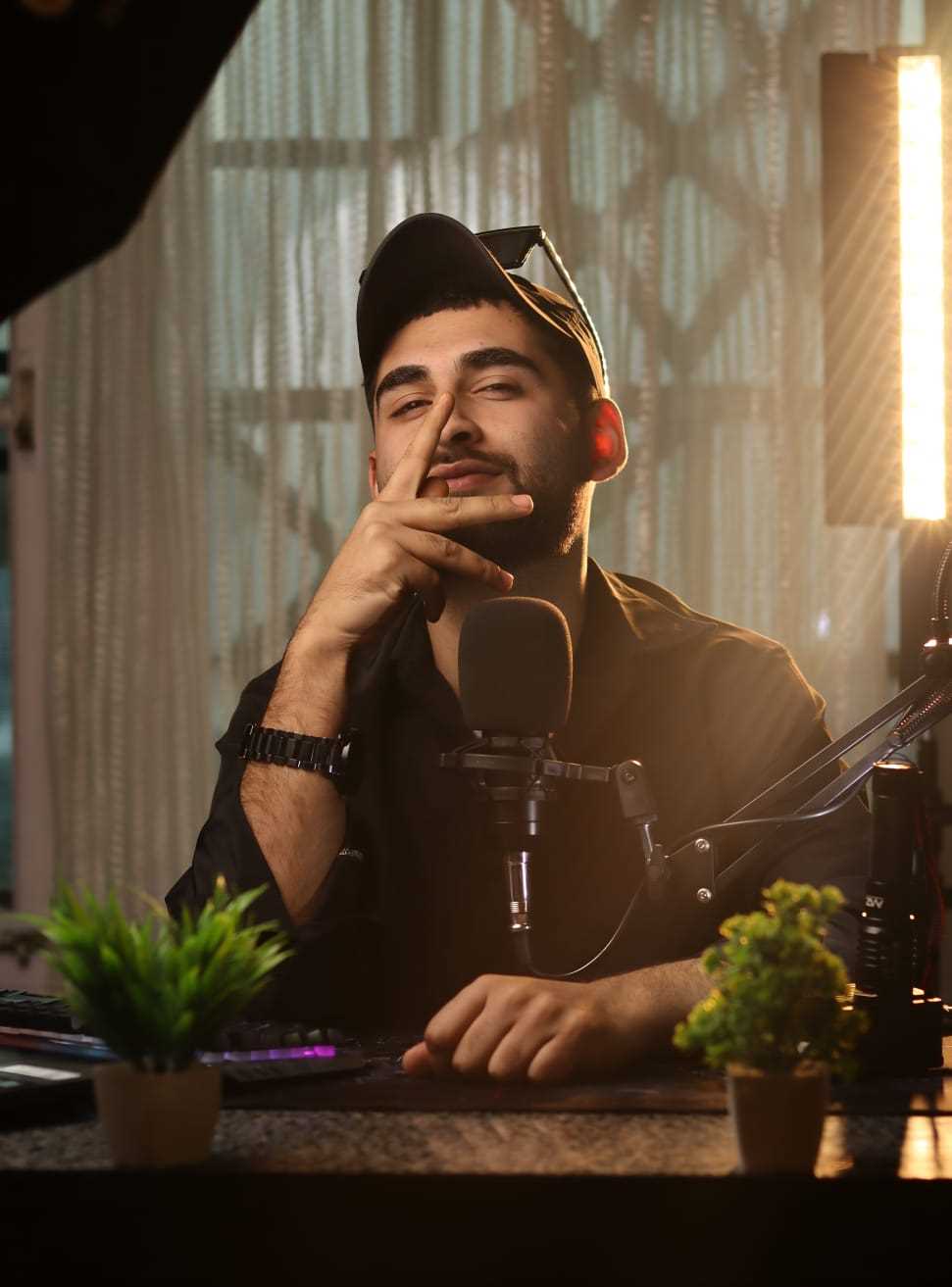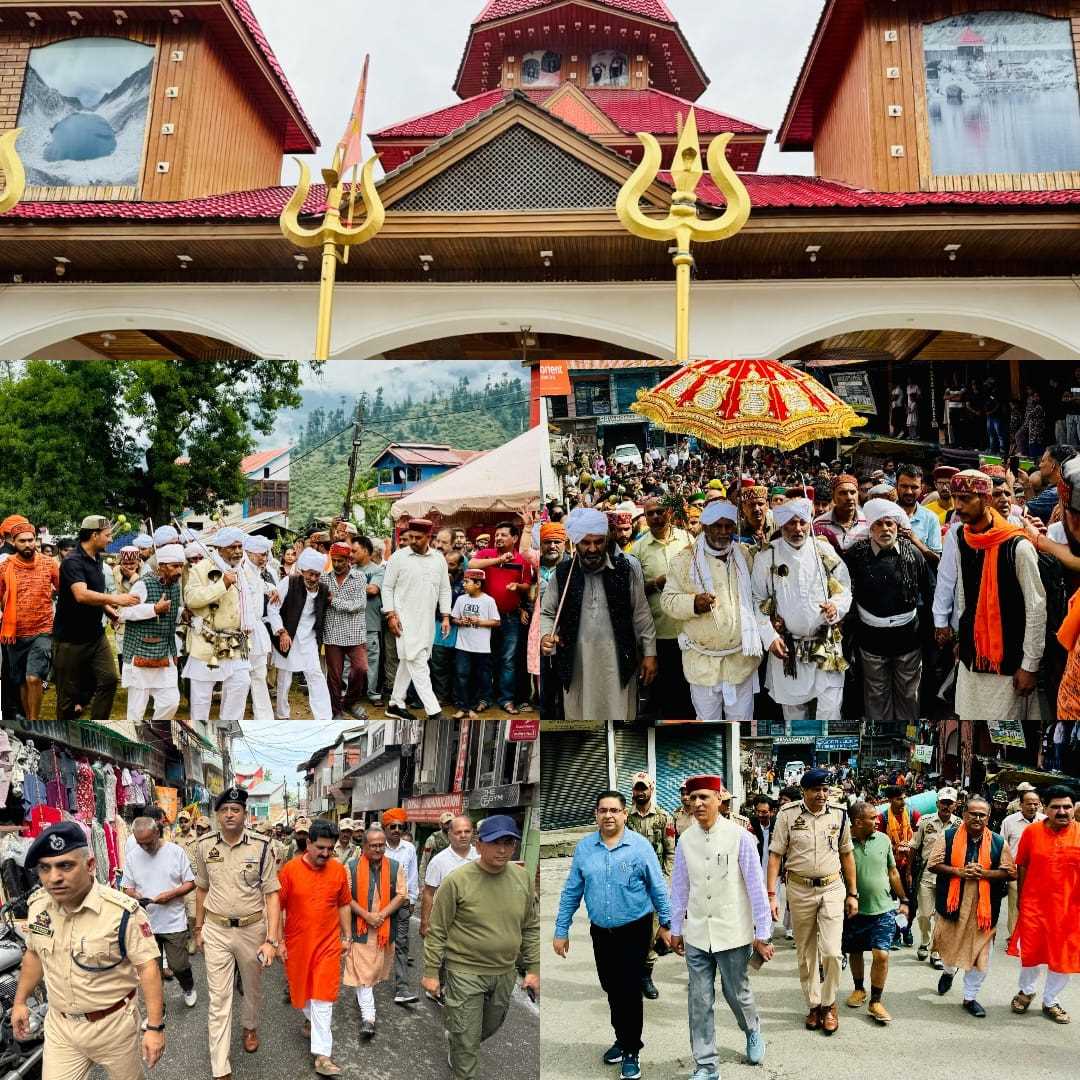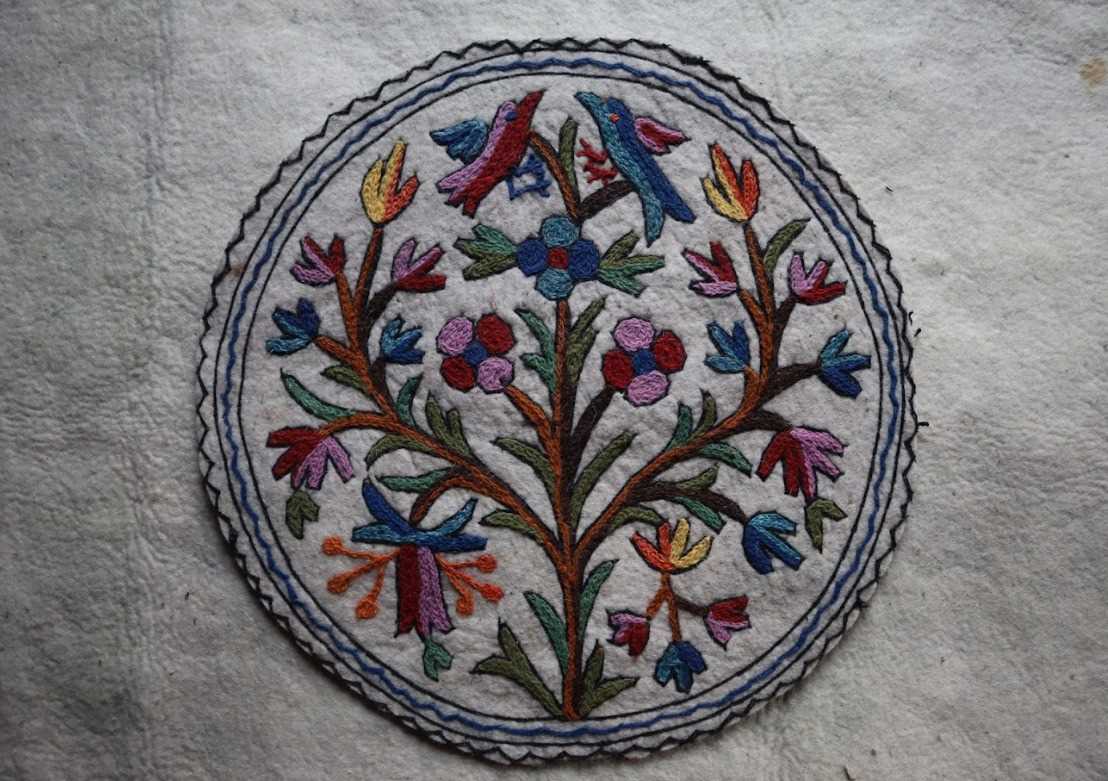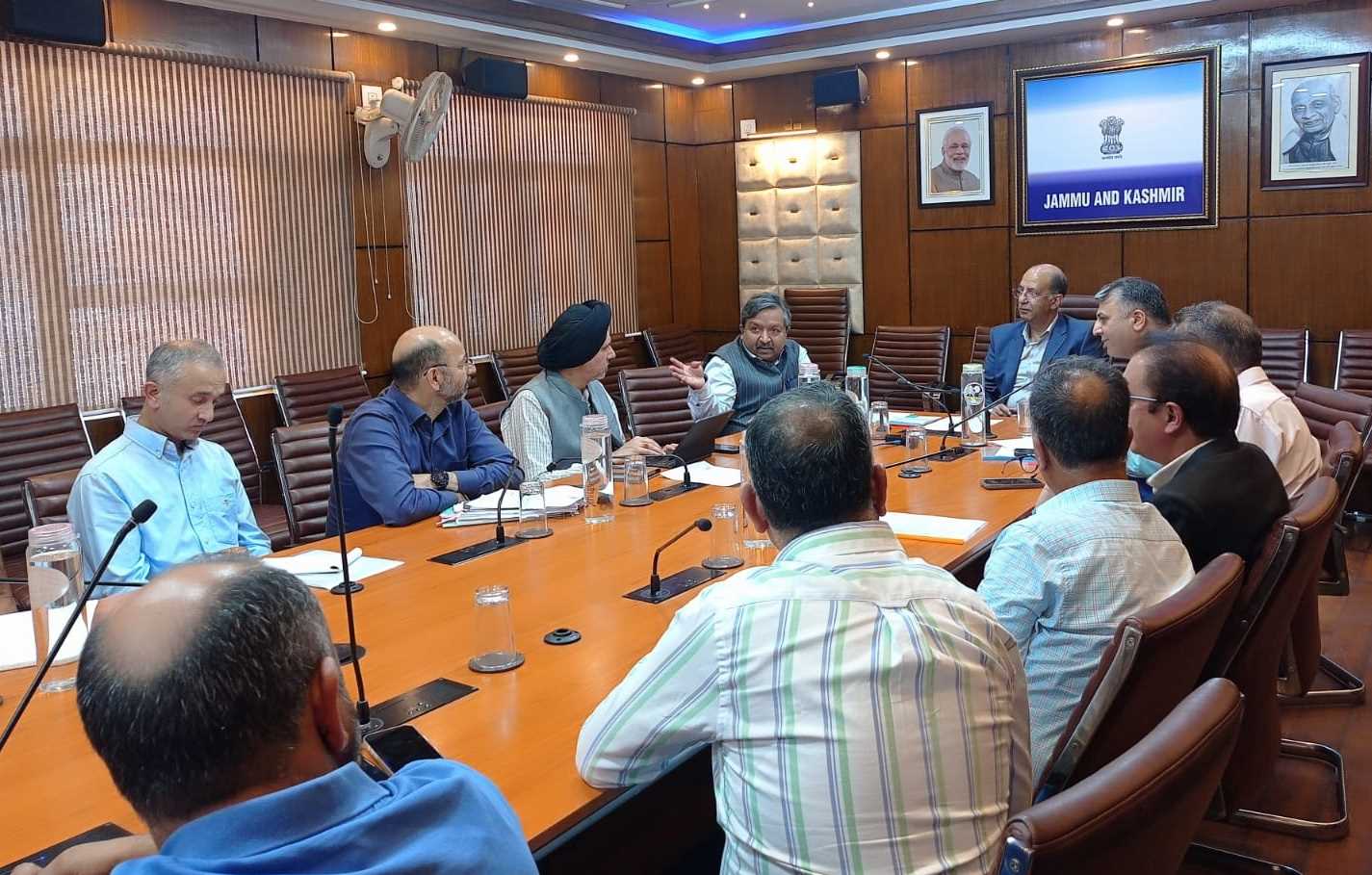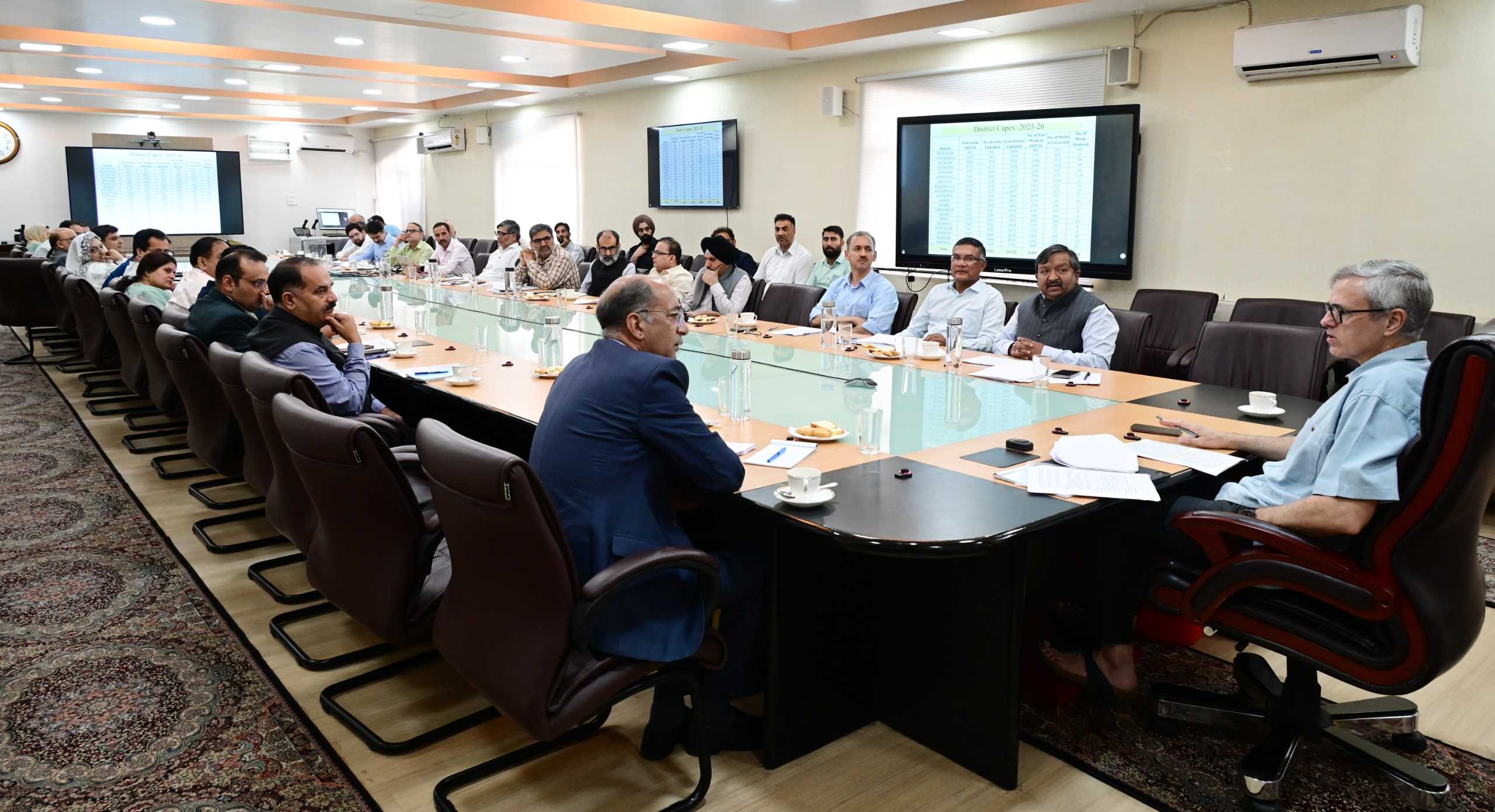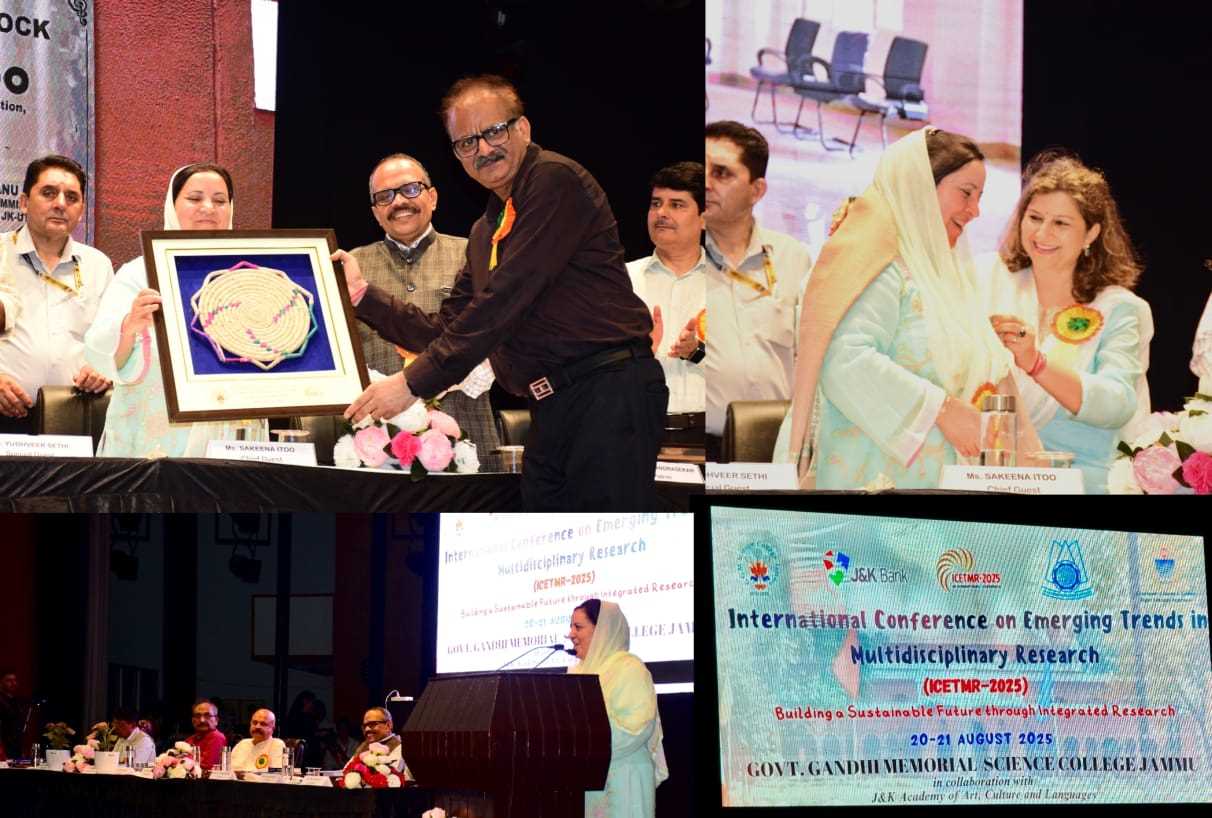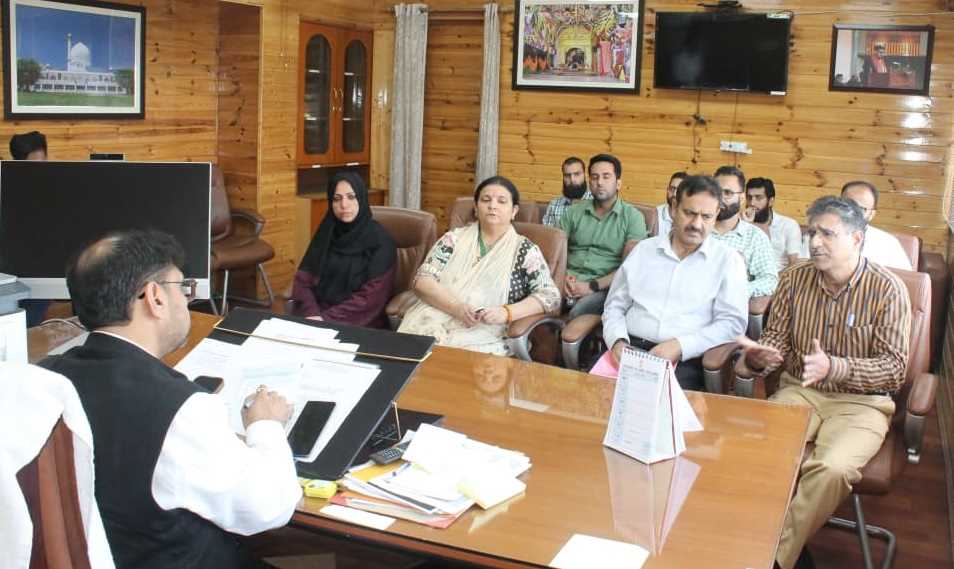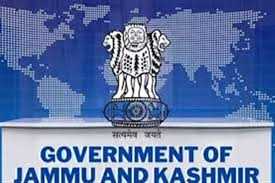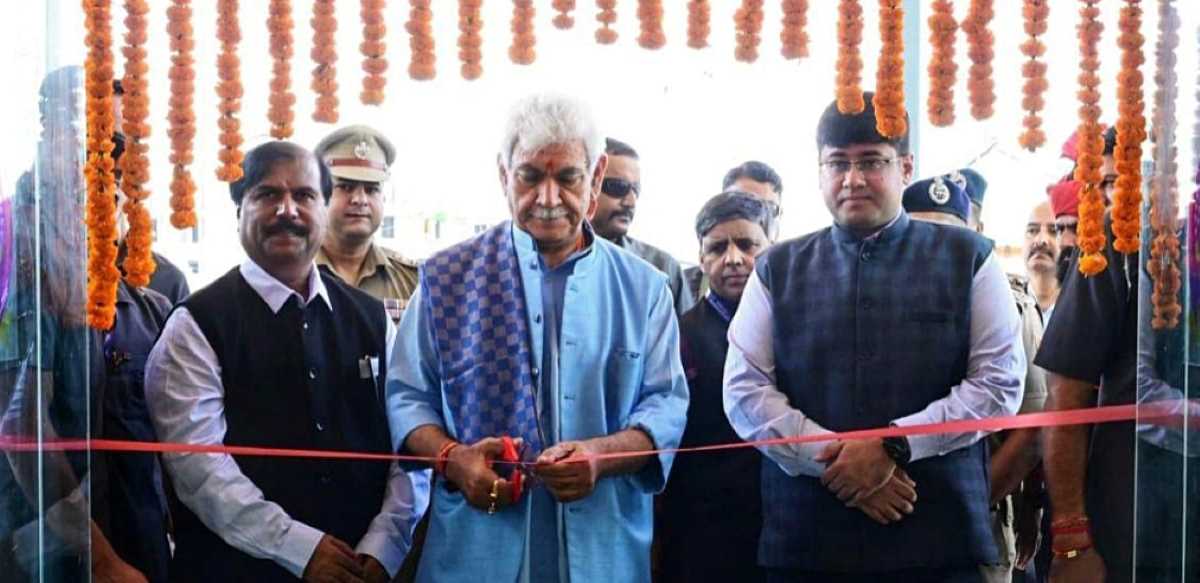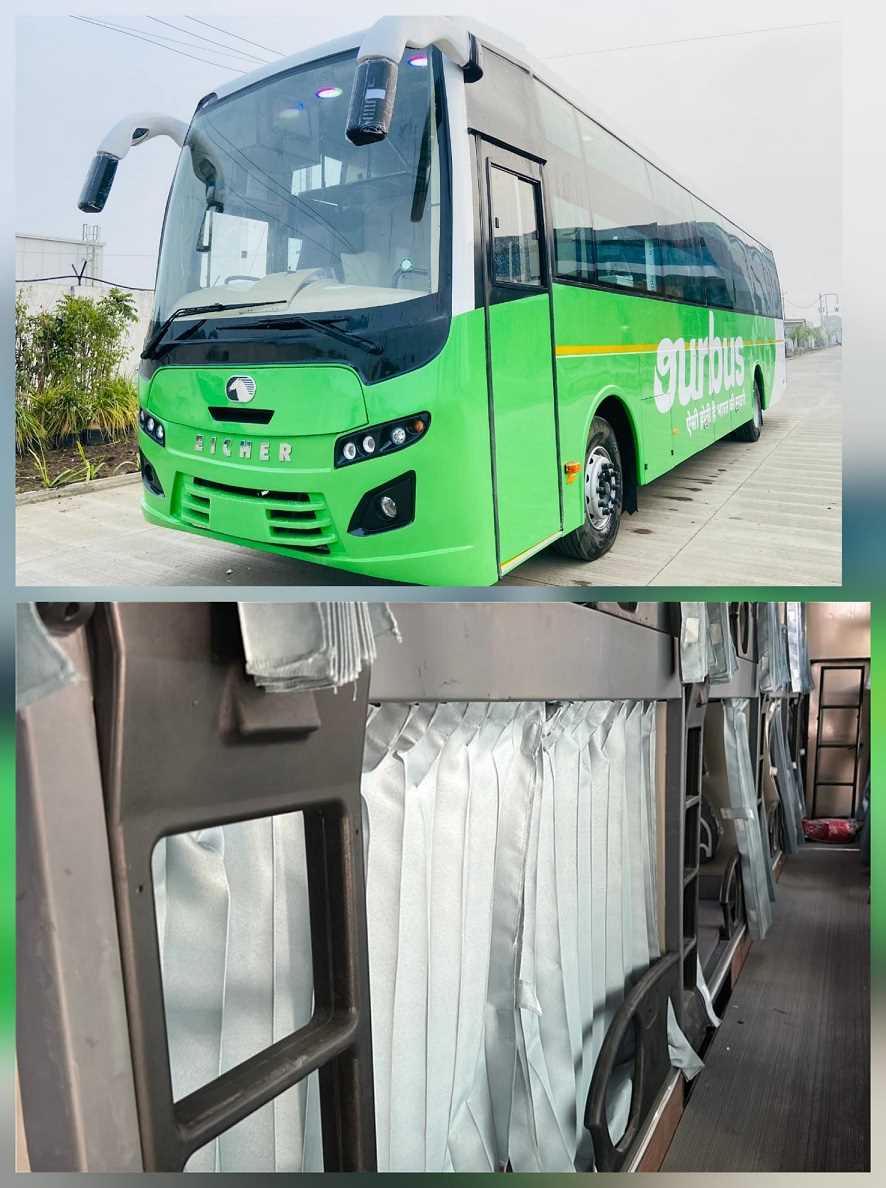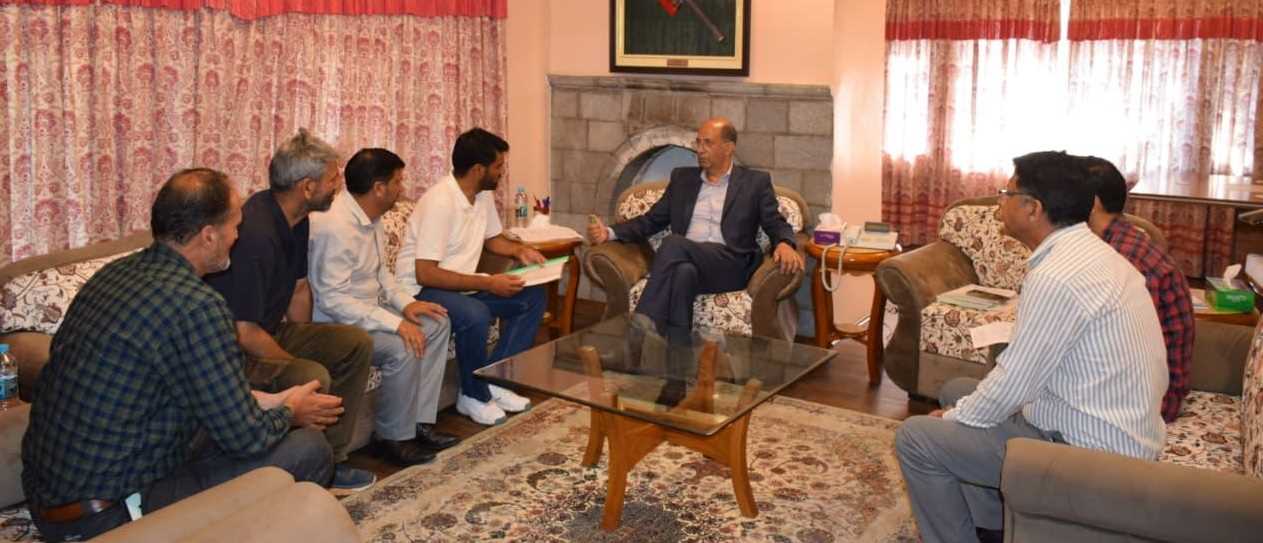In the early morning stillness of Baramulla, before the sun crested the Pir Panjal, 24-year-old Nayeem Mir opened the window of his bedroom. The streets lay silent, the air cool, and a lingering stillness settled over everything—a companion, a memory, a reminder.
“This,” he says, pointing toward the water, “is where I learned everything—pain, beauty, silence. And it’s the same place I’m trying to heal, one story at a time.”
It’s a bold mission for someone from Dardpora, a small village in north Kashmir’s Baramulla district. But then, nothing about Nayeem’s journey has been ordinary.
The Back-Bencher with Big Dreams
Raised in a modest household, Nayeem never imagined he'd become a public figure. “I was always the quiet back-bencher. Depression, anxiety, bullying—they were just part of my school life,” he recalls, his voice steady, though his eyes hint at old wounds.
At just 13, he found solace in writing Urdu poetry under the pen name Afnaan. His diary bore the title Mein Tanha—“I Am Alone.”
“I would write for hours. It was the only space where I could be fully honest,” he says. “But I felt trapped. One day, I told a friend: this place will kill my dreams. I needed more—I wanted to see myself in another world.”
He laughs, remembering the first piece he ever “published”—a handwritten note slipped under his cousin’s door, asking if she liked a song he’d recorded. “It was awkward,” he admits. “But I guess I’ve always needed feedback to keep going.”
From Rap Beats to Film Frames
In 2019, Nayeem uploaded his first rap song to YouTube under the name Axstar. “People laughed. Friends mocked me. I didn’t care—I had a broken phone and a dream.”
The real turning point came in 2020, when he enrolled in a Multimedia and Mass Communication program. His student projects quickly gained attention.
His short film Schizophrenia – The Misunderstood, exploring mental health stigma, won first place at Sarhad’s 1st J&K International Film Festival. “That film wasn’t just for the audience—it was for the 13-year-old me who needed someone to say, ‘Mental illness is real, and it matters.’”
He followed it with When It’s Too Late, Kashmir’s first post-apocalyptic short film, shot in public locations with special permissions. “We wanted to prove we could tell world-class stories right here, without leaving home.”
By 2023, Nayeem had invested all his savings—about ₹20,000—into a new project, Come Home. Around the same time, he began working on a documentary about child labor in Kashmir. It was during this period he met Anzar Bashir, who would become his closest creative collaborator. “We just clicked,” Nayeem says. “Same vision, same hunger.”
The Laptop Crash That Nearly Ended Everything
Then disaster struck. “One morning, my laptop wouldn’t turn on. Three years of work—gone in seconds.” He tried everything: technicians, online forums, even scam offers. “It felt like my entire journey had gone up in smoke.”
It was Anzar who pulled him back. “‘Bro, let’s begin again. Nothing’s broken yet,’ he said. That one sentence—it saved me.”
Instead of mourning the lost data, Nayeem shows a photo of an old sketchbook filled with charcoal drawings. “Not many people know this, but I started with drawing. That’s how I first learned to tell stories—with shapes and shadows.”
Life’s Next Curveball
Just as things were looking up, his grandmother was diagnosed with cancer. “Work didn’t matter anymore—family came first,” he says. He spent months in hospital corridors, juggling caregiving with scraps of creative work.
During those long nights, he developed a habit: reading travel blogs. “I’ve never been outside Kashmir,” he admits. “But in my mind, I’ve walked the streets of a hundred cities. Someday, I’ll film in Istanbul.”
By mid-2024, with his grandmother stable, Nayeem and Anzar returned to work—freelancing at weddings, shooting ads, and saving to buy their first camera. “No studio, just my tiny bedroom,” Nayeem says, smiling. “But we had the fire.”
The Instagram Leap
On February 15, 2025, they posted their first Instagram reel. A month later, during Ramadan, they challenged themselves: 30 reels in 30 days. “It was exhausting… but life-changing.”
The audience responded. They reached 10,000 followers in the first month. By August 11, their page had grown to 74,000.
“But the numbers weren’t the point,” Nayeem says. “It was the messages—people saying our videos gave them hope. That’s when you realise this isn’t content—it’s connection.”
One such message came from a former classmate: “They remembered me as the boy who never spoke in class. And now I’m the one speaking to thousands. Life’s funny like that.”
Three Series, One Purpose
Their Instagram presence now centers around three flagship series:
Rooh – “For those who feel invisible.”
Aayina – “To hold a mirror to society’s problems.”
K-Town Tales – “A cinematic journey into Kashmir’s untold stories.”
Each project combines visuals and narrative to reflect local culture, personal emotion, and social commentary.
“If I can’t make you feel Kashmir, I haven’t done my job,” Nayeem says. He often incorporates personal elements—a real shop sign, a childhood alley, the smell of kangri charcoal in winter.
Beyond the Screen
More than a filmmaker, Nayeem has become a lifeline to many. “Some people told me our videos stopped them from ending their lives. You don’t forget that.”
He has a quiet ritual before filming: listening to a lullaby his grandmother used to sing. “It reminds me why I tell stories—to protect memories before they vanish.”
“My goal is to ensure Kashmir is remembered not for conflict, but for its beauty, people, and heritage. I want my work to inspire change, spark reflection, and offer hope.”
The Will to Begin Again
Looking out toward the Jhelum, Nayeem reflects on the arc of his journey—from a quiet, hurting teenager to an award-winning filmmaker and digital storyteller.
“From a burned diary to a broken laptop to reaching millions—it’s been rough,” he says. “But I’ve learned this: life can erase your work, but not your will to start again.”
Beside him, Anzar grins. “And maybe it can’t erase two stubborn dreamers either.”
The Final Message
“My content helps those who left Kashmir reconnect with home. And even locals tell me they’ve learned something new about their own land.”
These messages, he says, are the real reward—not fame or followers, but the spark of connection, the revival of identity, and the power of hope.
Because no matter how broken your beginnings, you still carry the power to create light for others. And perhaps, like Nayeem Mir, in choosing to rise—you become the voice someone else is waiting for.
